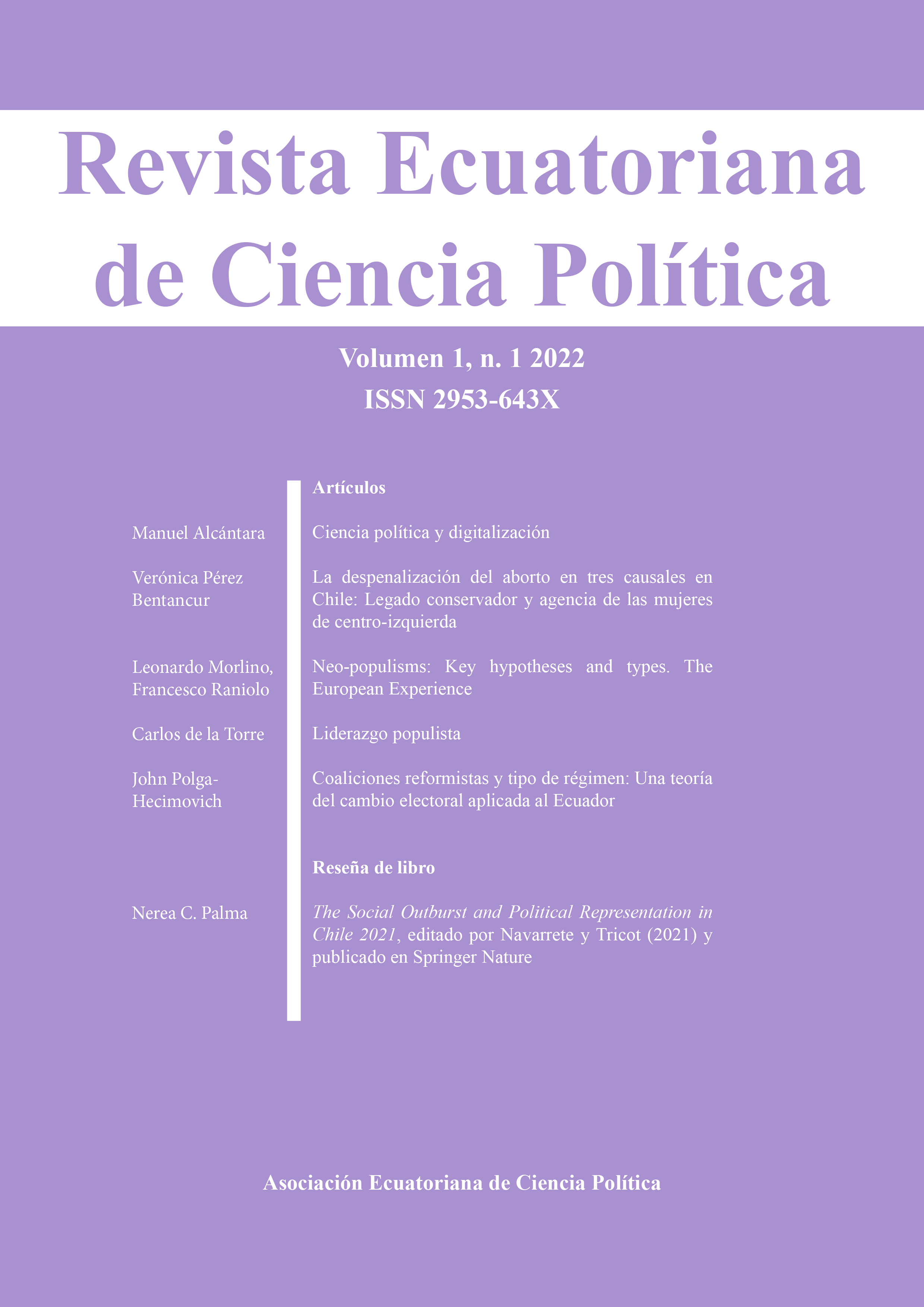Reform coalitions and regime type: A theory of electoral change with application to Ecuador
DOI:
https://doi.org/10.59352/recp.v1i1.26Keywords:
electoral reform, electoral change, political coalitions, institutions, EcuadorAbstract
Throughout its history, Ecuador's electoral system has been subject to constant review,
especially during the democratic era. Although much has been written about these changes,
existing theory does not provide a coherent framework for reforms. In this article, I explain
electoral change as a function of different types of reformist coalitions conditioned by the
type of regime. According to the academic literature, under authoritarianism elites sought
electoral changes to maximize their power or minimize their potential electoral losses
in the face of extra-systemic challenges through protective reforms. However, under
democracy, political fragmentation and weak institutionalization of the party system have
made parties less able to maximize their long-term interests, meaning that the reform has
assumed a bottom-up realigning nature. I assess this coalition theory by reconstructing
the processes behind seven key moments of electoral reform: 1830, 1861, 1929, 1947,
1979, 1997, and 2020.

Published
How to Cite
Issue
Section
License
Copyright (c) 2022 John Polga -Hecimovich

This work is licensed under a Creative Commons Attribution-ShareAlike 4.0 International License.
All the contents of this electronic edition are distributed under the Creative Commons license of “Attribution-ShareAlike 4.0 International” (CC-BY-SA). Any total or partial reproduction of the material must cite its origin.
The rights of the published images belong to their authors, who grant Diseña the license to use them. The management of the permits and the authorization of publication of the images (or of any material) that contains copyright and its consequent reproduction rights in this publication is the sole responsibility of the authors of the articles.




